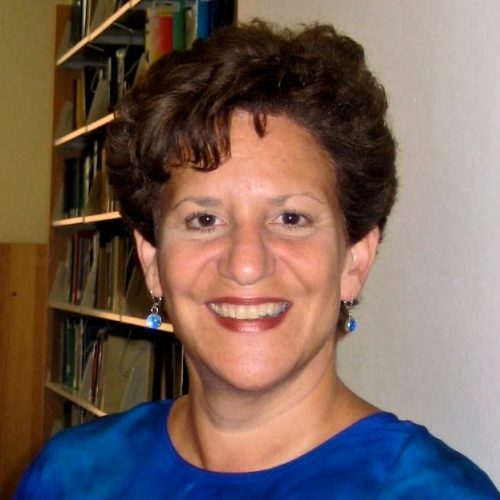
Gail Geller
Gail Geller, ScD, MHS, is a Professor in the School of Medicine, core faculty in the Berman Institute of Bioethics (BI), and the BI’s Director of Education Initiatives. She holds joint appointments in the Bloomberg School of Public Health’s Departments of Health, Behavior & Society and Health Policy & Management, and the Krieger School’s Department of Sociology. She received her BS from Cornell University and her doctorate from the Johns Hopkins School of Public Health with concentrations in bioethics and social and behavioral sciences.
An “empirical ethicist”, she applies the social and behavioral sciences to moral and humanistic questions in medicine and health care. For over 25 years, she has conducted research – both quantitative and qualitative – on the ethical and social implications of genetics and genomics in the adult, pediatric, family and public health contexts. Currently, she is Co-Director of the Johns Hopkins Center for Bridging Infectious Disease, Genomics and Society (BRIDGES), an NIH Center of Excellence designed to address the ethical, legal, social and policy issues arising from the application of genomics to the prevention and treatment of infectious diseases.
In addition to her work in genetics, she has longstanding interests in the medical socialization process, and cultural differences in attitudes toward health and disease. These themes are reflected in her other substantive areas of scholarship: complementary and alternative medicine (CAM) and palliative care. She received one of the highly coveted NIH “challenge” grants to explore the integration of palliative care in the management of children, young adults and families affected by chronic, life-threatening disorders (muscular dystrophy and sickle cell disease). As part of this project, she co-produced several award-winning short documentary films for training purposes. Underlying all her areas of scholarship – genetics, CAM, and palliative care – is a fascination with uncertainty and the challenges posed by equivocal, absent, or uninterpretable evidence when evidence-based medicine is the ideal.
She also has longstanding interests in ethics education. She served as Co-Deputy Director of the Greenwall Fellowship Program in Bioethics & Health Policy until 2012, and now as the BI’s Director of Education Initiatives oversees the Hecht-Levi Fellowship Program in Bioethics, the Masters in Bioethics and the Bioethics Summer Institutes. As Co-director of a Fogarty International Center training grant in China, she taught young Chinese geneticists about the social, psychological, cultural and ethical components of their research. She currently oversees the “culture of medicine” core theme in the medical curriculum. In addition, she co-directs three courses in the School of Medicine: (1) the Scholarly Concentration called the HEART (Humanism, Ethics, Education and the ‘Arts’) of Medicine; (2) Integrative Medicine; and (3) the Healer’s Art.